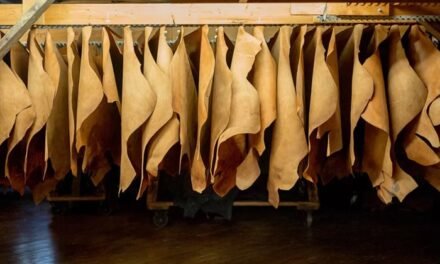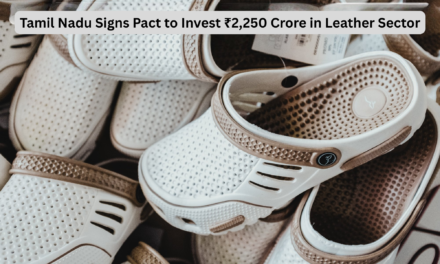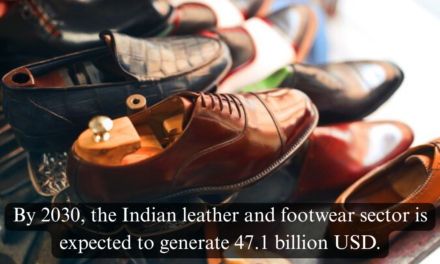The growing global demand for vegan leather is driving significant innovation within India’s leather industry, as manufacturers explore and develop sustainable, cruelty-free alternatives to traditional animal-based leather. As consumers become more environmentally and ethically conscious, the appeal of vegan leather—which offers a stylish, durable, and eco-friendly option without relying on animal products—has skyrocketed, influencing key players in the Indian leather market to embrace new technologies and materials.
Environmental and Ethical Concerns: With increasing awareness about animal rights and the environmental impacts of traditional leather production, consumers are increasingly turning to plant-based and synthetic leather alternatives. Indian manufacturers are responding by developing innovative vegan leather solutions made from materials such as pineapple leaves, mushrooms, apples, cacti, and cork. These alternatives offer the same aesthetic qualities and durability as traditional leather, with the added benefit of being more sustainable and biodegradable.
Sustainability in Focus: India’s leather sector, traditionally known for its reliance on animal hides, is now pivoting toward eco-conscious production methods. The rise of vegan leather aligns with the global trend towards sustainable fashion. Many Indian manufacturers are adopting plant-based leathers like Piñatex (made from pineapple leaves) and Mushroom Leather, which not only reduce the carbon footprint of leather production but also contribute to a circular economy by utilizing agricultural waste and renewable resources.
Innovative Material Development: Indian companies are increasingly experimenting with new vegan leather technologies to meet rising demand in both domestic and international markets. For example, apple leather (made from the waste of apple processing) is gaining attention for its sustainability, while cactus leather is being explored for its natural look and feel, offering an alternative that is water-efficient and non-toxic. These innovations are pushing India to the forefront of the vegan leather revolution, contributing to both job creation and sustainable growth.
Consumer Preferences and Fashion Trends: The rise of eco-conscious fashion and the increasing influence of millennial and Gen Z consumers who prioritize ethical and sustainable products are accelerating the demand for vegan leather. As a result, Indian manufacturers are responding to the growing global trend by offering a range of fashion-forward, vegan leather products such as handbags, footwear, accessories, and clothing. Many of these products are not only cruelty-free but also appeal to consumers looking for unique, high-quality items that reflect their commitment to sustainability.
Government Support and Industry Collaboration: The Indian government is also supporting the shift toward sustainable manufacturing by promoting research and development into new vegan leather technologies. Industry stakeholders, including the Leather Export Promotion Council (LEPC) and various trade bodies, are collaborating with manufacturers to ensure that vegan leather products meet international quality standards while adhering to sustainability and ethical production guidelines.
With these advancements, India’s leather industry is positioning itself to lead in the global vegan leather market. By embracing innovation, sustainability, and ethical sourcing, India is not only meeting the rising demand for vegan leather but also setting the stage for a greener and more ethical future in the global leather market. This shift represents a key opportunity for India to enhance its reputation as a sustainable leather manufacturing hub, catering to a new generation of conscious consumers.







